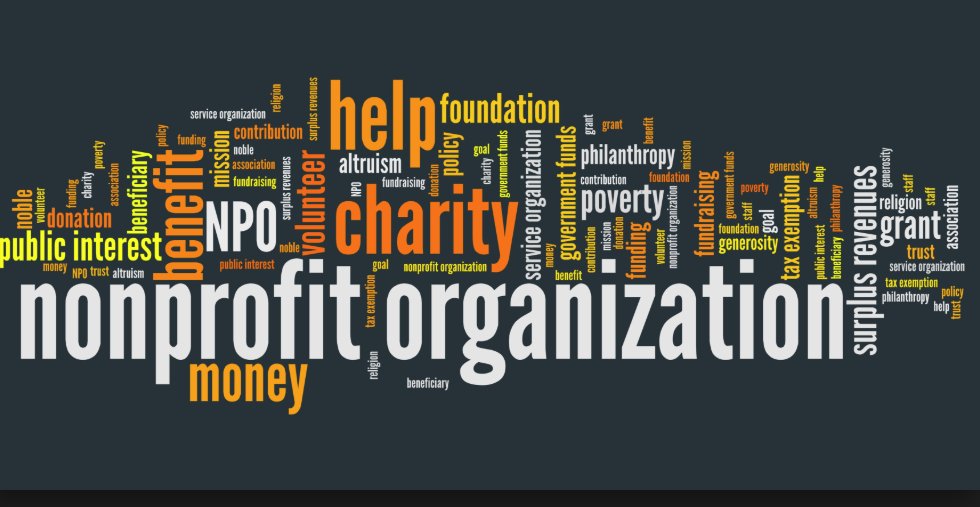Nonprofit Firm: Comprehensive Services to Support Charities and Organizations
Nonprofit Firm: Comprehensive Services to Support Charities and Organizations
Blog Article
Discovering the Diverse Features and Responsibilities of a Nonprofit Agency in Addressing Social Issues and Supporting Adjustment
Not-for-profit firms act as crucial representatives of adjustment within culture, tackling a myriad of social problems through complex strategies. Their duties prolong beyond mere solution stipulation; they involve in advocacy, source mobilization, and area outreach, usually acting as a bridge between important solutions and marginalized populaces. By promoting cooperations and employing culturally pertinent strategies, these companies attend to the origin of social challenges. Yet, the complexities of their roles elevate crucial inquiries regarding effectiveness and sustainability. What are the effects of these varied features on long-lasting community influence?
Understanding Nonprofit Firm Roles
The efficiency of not-for-profit agencies pivots on a clear understanding of their varied duties within culture. Not-for-profit companies frequently work as service providers, supplying important programs and resources to underserved populations.
Additionally, nonprofits play an essential role in campaigning for, raising recognition and influencing plan decisions that affect their communities. By taking part in study and public education, these companies help form public discourse and promote informed decision-making - nonprofit agency. They also offer as platforms for volunteerism, activating neighborhood members to contribute their time and skills toward cumulative goals
Furthermore, nonprofit firms frequently serve as conveners, uniting varied stakeholders to foster cooperation and collective impact. This joint method improves their capability to attend to complicated social concerns successfully. Comprehending these complex roles is critical for optimizing the capacity of nonprofit companies in creating sustainable social modification and improving general area well-being.
Community Engagement and Outreach
Reliable neighborhood involvement and outreach are fundamental components of not-for-profit firms' strategies to foster links and develop trust within the communities they serve. These efforts concentrate on comprehending community requirements, promoting awareness of offered resources, and encouraging involvement in programs created to resolve social issues. Not-for-profit organizations employ a selection of methods to engage with community participants, such as workshops, informative sessions, and collective occasions.
Outreach efforts serve to reinforce relationships with varied populaces, specifically marginalized groups who may face barriers to access. By using culturally relevant communication approaches and leveraging regional collaborations, nonprofits can boost their visibility and demonstrate their dedication to area empowerment. This strategy not only grows a sense of belonging yet also enhances the possibility of sustained involvement.
Furthermore, reliable neighborhood involvement goes past simple involvement; it entails proactively paying attention to neighborhood members' feedback and including their insights into program development. This collaborative procedure ensures that the services used are receptive, pertinent, and tailored to the special obstacles dealt with by the community. Inevitably, cultivating strong links via interaction and outreach can lead to more impactful interventions and a greater cumulative effort towards promoting positive social adjustment.
Advocacy and Plan Impact
Campaigning for functions as a critical mechanism for not-for-profit agencies to influence public plan and drive systemic adjustment. By leveraging their know-how and community insights, these organizations can properly represent marginalized populations and address pushing social issues. Nonprofits participate in campaigning for with various techniques, consisting of public understanding projects, grassroots mobilization, union building, and straight lobbying of policymakers.
Via these initiatives, nonprofit companies aim to form regulations and policy frameworks that straighten with their goal and the needs of the communities they offer. They carry out study, collect data, and share compelling stories to highlight the necessity of certain problems, guaranteeing that directory decision-makers are notified and inspired to act. This process not only enhances the voices of those influenced by social oppressions but also promotes a more comprehensive and equitable policymaking setting.
Additionally, advocacy efforts usually seek to create lasting architectural modifications, addressing root creates instead of merely reducing symptoms. By prioritizing plan influence, not-for-profit firms add to a broader understanding of social obstacles and promote services that can lead to lasting improvements in social health. Inevitably, advocacy is essential to the transformative duty nonprofits play in producing a simply and Learn More equitable society.
Fundraising and Source Administration
Nonprofit firms depend on durable fundraising and resource administration methods to support their advocacy initiatives and sustain their missions. Efficient fundraising is essential for making certain the schedule of financial resources needed to apply programs and activities that deal with pushing social problems. This procedure typically involves diversifying revenue streams with grants, individual contributions, company sponsorships, and fundraising occasions. By using a multi-faceted technique, nonprofits can minimize the dangers related to dependence on a solitary financing resource.
Source administration is similarly essential, as it entails the tactical appropriation of both financial and human sources to optimize influence. Nonprofits have to establish budgets that align with their objectives while making certain transparency and responsibility to stakeholders. This entails routine surveillance of expenses and adjusting methods as needed to maximize resource use.

Partnership and Collaborations
While lots of organizations seek their missions individually, collaboration and collaborations can substantially improve the efficiency of not-for-profit agencies. By interacting with other nonprofits, federal government entities, and economic sector companies, nonprofits can pool sources, share experience, and enhance their effect on social concerns. Joint initiatives frequently bring about innovative services that may not be possible separately, leveraging the strengths of each partner to address intricate obstacles.

Ultimately, reliable partnership requires clear interaction, shared objectives, and shared respect amongst companions. By embracing a participating technique, not-for-profit firms can create sustainable networks that not just address prompt social issues however likewise contribute to lasting systemic change, promoting a much more equitable society. Via cooperation, nonprofits can grow and maximize their capacity for significant influence.
Conclusion
Not-for-profit firms serve as vital entities in dealing with social problems and cultivating adjustment within communities. Ultimately, the diverse roles of nonprofit companies significantly contribute to the quest of social justice and the improvement of community health.
Recognizing these complex duties is critical for taking full advantage of the possibility of nonprofit firms in creating lasting social change and improving total neighborhood health.
Efficient neighborhood interaction and outreach are fundamental parts of nonprofit agencies' approaches to promote connections and build depend on within the areas they serve. By working with each other with other nonprofits, federal government entities, and personal field organizations, nonprofits can pool resources, share competence, and enhance their impact on social issues.Nonprofit firms serve as critical entities in fostering and attending to social concerns change within areas - nonprofit agency. Inevitably, the multifaceted functions of not-for-profit companies substantially contribute to the pursuit of social justice and the enhancement of community wellness
Report this page